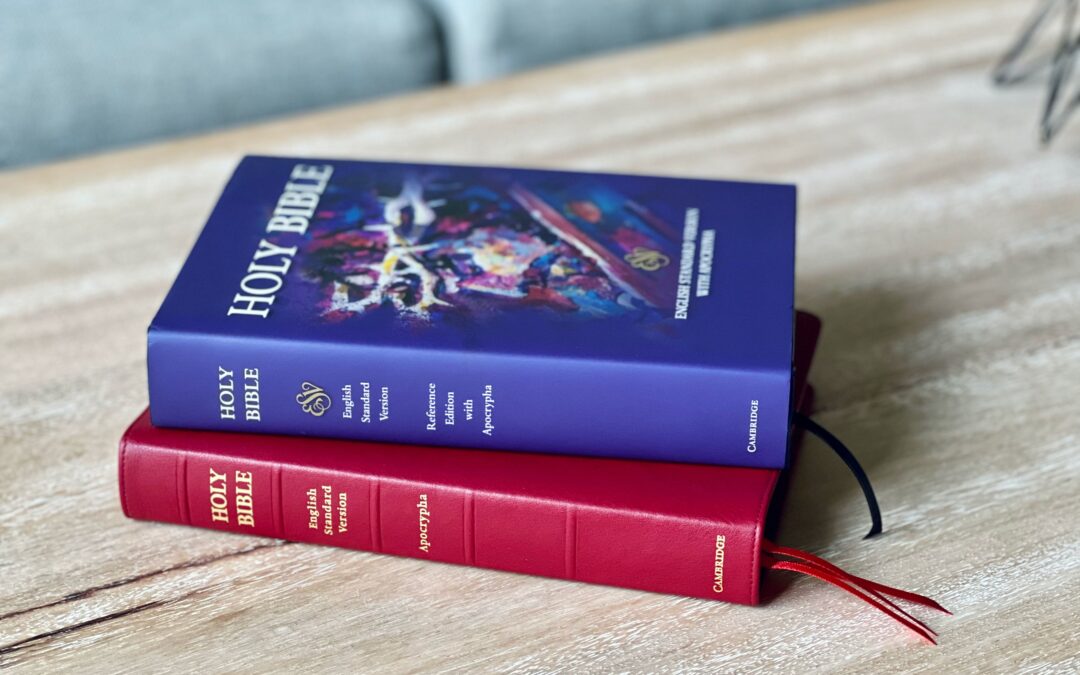According to the Book of Common Prayer 2019 (BCP, p. 736), readings from the Apocrypha have been retained in our tradition. The Thirty-Nine Articles clarify questions of doctrine and practice in the Anglican Church, and Article 6 addresses the place of the Apocrypha for us. The classic Anglican principle is that the Church reads these books ‘for example of life and instruction of manners,’ however we do not apply these readings to establish any doctrine. A list of the apocryphal books may be found on page 774-775 of the 2019 BCP.
What’s In These Readings?
In practice, there are only a few Sundays each year when the Apocrypha is read in worship. Our Sunday lectionary actually only includes two books from the Apocrypha: Ecclesiasticus and Wisdom of Solomon. Both of these books are classified as wisdom literature, so we listen to these readings to grow in Christian virtue and wisdom.
I have found great benefit from reading these wisdom writings, particularly Ecclesiasticus. This Sunday’s reading focuses on humility. Other sections of Ecclesiasticus address topics which are seldom addressed elsewhere in the Old and New Testaments; topics such as working with one’s hands, the dignity of artists, how to live with illness, the qualities of true friendship. We have great treasures in these ancient writings.
Other Apocryphal writings appear in the service of Morning Prayer. The Benedictus Es, Domine(BCP 2019, p. 18), which is derived from the Apocryphal canticle Song of the Three Young Men is the daily hymn of praise for Lent:
Glory to you, Lord God of our fathers;
you are worthy of praise; glory to you.
Glory to you for the radiance of your holy Name;
we will praise you and highly exalt you forever.
Glory to you in the splendor of your temple;
on the throne of your majesty, glory to you.
Glory to you, seated between the Cherubim;
we will praise you and highly exalt you forever.
Glory to you, beholding the depths,;
in the high vault of heaven, glory to you.
Glory to you, Father, Son, and Holy Spirit;
we will praise you and highly exalt you forever.1
Another section from the Song of the Three Young Men is Benedicite, Omnia Opera Domini, A Song of Creation (BCP 2019, p. 87-88). This song of praise is appointed for Saturday in Morning Prayer, which leads us into the beauty of creation while also preparing us for Sunday worship. We include this Song of Creation from The Song of the Three Young Men every Rogation Day during the opening procession.
Reading with the Universal Church
These texts are a useful part of the Church’s great tradition and were certainly known to the Apostles and were read and quoted by the Church Fathers. They are accepted as canonical by the Roman Catholic and Orthodox churches. We read them because we are part of the one holy catholic and apostolic church and because they are profitable for us. They help train us in wisdom; they give us words to worship the Lord in the beauty of holiness.
While we consider them valuable, we do not equate them with Holy Scripture nor consider them inspired. Because of this, we do not proclaim them to be the Word of God. To conclude the reading from the Apocrypha, the reader says “Here ends the Reading.” There is no response of “Thanks be to God,” from the people. At Apostles, we will include these readings as they appear in the lectionaries in keeping with the BCP rubrics and Anglican tradition.
- The Trinitarian doxology at the end of Benedictus Es, Dominedoes not appear in the original text, but is appended to the end of the canticle in keeping with Anglican custom. ↩︎

